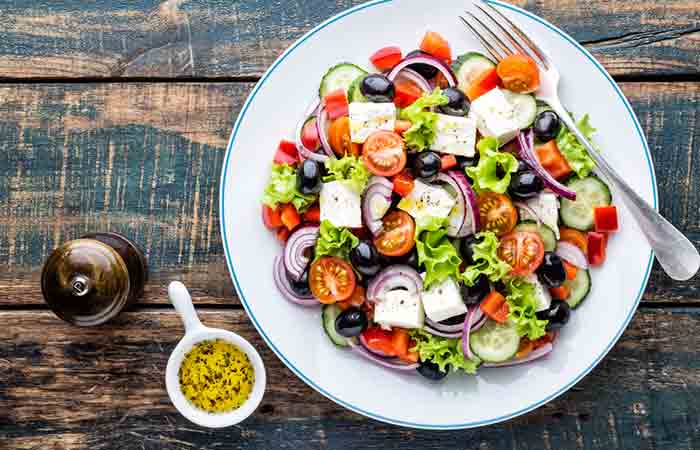Regardless of the diet you’re on, to be healthy and well you need to meet your nutritional needs by consuming mostly whole foods. This refers to foods that retain their natural state or undergo only minimal processing.
So, whether you’re eating plant-based or meat-based, the key is to stick with real foods.
Plant-based meat (a.k.a. vegan meat or meatless meat) has become significantly more popular in the past few years — although it has originated in the 1970s.
Some people switch from traditional burger patties, sausages, and other deli meats to plant meat for a variety of personal reasons. For example, they believe it helps offset climate change, reduce their saturated fat intake, or eat “cleaner.”
But does it promote optimal health? This article answers the question, “What is plant-based meat?” and examines its ingredients, taste, quality in comparison to animal meat, and its pros and cons.
What are Plant-Based Meats?
Plant-based meats are basically meat alternatives made by combining different plant sources such as soybeans, potatoes, and canola, as well as other ingredients. This is to make them look, feel, and taste like real meat and achieve a macronutrient profile that’s comparable to popular processed meat products.
You’ll find plant-based versions of anything, from ground meat to burger patties to sausages to chicken nuggets. Vegan meats are not just aimed at vegans and vegetarians, but also at omnivores who may be curious to try these cheaper and more convenient meat-free options.
While eating vegan substitutes like Beyond Burger and Impossible Burger — two of the most popular meat replacement brands today — allows you to skip ready-to-eat meats, the fact is that these products are still considered highly processed or ultra-processed.
That said, plant-based meats are not exactly the best foods for your health.
What are Plant-Based Meats Made Of?
Some of the ingredients in plant meat products are either linked to health problems or have untested health effects. These include:
1. Genetically modified (GM) crops like soybeans, corn, canola, and beets
While GM crops withstand herbicides without causing harm to the soybean plant itself, there is a concern that genetically modified crops may cause food allergies.
2. Whole grains like quinoa and barley
Whole grains contain antinutrients such as phytic acid, saponins, and oxalates. Antinutrients are substances that hinder the absorption of nutrients. Consuming them frequently and in large amounts could potentially lead to nutrient loss, especially in people who are at risk of them. This includes pregnant women, children, adolescents, and those who are obese, and critically ill.
3. Sunflower oil
Sunflower oil is intended to replace animal fat in plant-based patties and nuggets, and raise the fat content of these foods. Unfortunately, sunflower oil (and other vegetable oils like canola oil and corn oil) has a high linoleic acid content (omega-6). Too much omega-6 in your diet causes inflammation, raising your risk of being overweight or obese.
4. Cultured dextrose
Cultured dextrose has been advertised as a more natural way of sweetening and preserving processed foods. It’s made by combining glucose, a simple sugar, with the bacteria Propionibacterium freudenreichii. It may increase your blood sugar levels and cause food intolerance symptoms like headache, fatigue, and joint pain.
5. Carrageenan
This is an additive that improves the texture of plant-based meats and holds their shape together. There’s evidence showing that carrageenan can cause gastrointestinal issues, such as bloating and inflammation. It’s also linked to ulcerative colitis and intestinal cancer.
6. Flours and starches that create structure in vegan meat
Potato starch and yellow corn flour are commonly used as gluten-free alternatives in plant meats. They’re derived from potatoes and corn, respectively. In addition to being genetically modified crops, they contain high amounts of carbohydrates. These are not exactly the kind of ingredients you’ll want in a product when you’re on a ketogenic diet.
Just because it’s meatless, doesn’t mean it’s good for your body.
Plant-based meats fall under the category of ultra-processed foods (just like instant snacks, breakfast cereals, soft drinks, and pre-prepared burgers).
The NOVA food classification defines processed foods as industrial formulations which include sugar, starch, proteins, oils, colors, flavor enhancers, and other additives. In addition, they undergo extensive processing and manufacturing.
For instance, extrusion processing is used to imitate meat texture by subjecting proteins to thermal and mechanical stress. Another would be inserting soy DNA into yeast to produce leghemoglobin, a heme-containing protein that would make vegan meat “bleed” like real meat.
How Do Plant-Based Meats Taste?
While companies that sell plant-based meats claim that they taste and cook like real meat, the reality is that they’re in that strange middle ground — they taste “sort of” like the meat product they’re trying to imitate, and yet they don’t fully meet your expectations.
But, at the end of the day, everyone has their opinion on the taste of vegan meat. You may want to consider trying it yourself and see if there’s a difference.
Mimicking the taste of meat is a difficult process and takes trial and error. To achieve the right taste, food companies need to understand and use the Maillard reaction (which seared steaks and roast chicken, among many other foods undergo). This is a “browning reaction” that happens when amino acids and sugar molecules react to form a darker color, along with a kind of flavor and aroma that make food delicious.
Is Plant Based-Meat Healthier Than Animal Meat?
Focusing on whole foods — foods that do not have added starches, flavor enhancers, and coloring — helps to improve your health and avoid disease.
In other words, plant-based meat is highly processed and inferior to animal meat, including vegetables and fruits in their natural forms. Animal meat is just animal meat, while even the “healthiest” plant-based meat has a long ingredient list, some of which you may not understand or let alone pronounce.
Eating unprocessed foods lets you maximize your vitamin and mineral intake to support essential bodily functions, from energy production to tissue repair. This is also why we encourage a clean keto approach while on a keto diet.
What you should know about animal-based foods and saturated fat:
Contrary to popular belief, saturated fat (found mainly in animal foods) does not contribute to the development of coronary artery plaque. Rather, what clogs your arteries is a combination of insulin resistance and systemic inflammation, which are caused by too much omega-6 and refined carbohydrates in your diet[*].
If you’re steering away from animal meats because of saturated fat, perhaps it’s time to reassess this belief.
Here’s an article that discusses saturated fat in detail with a link to the Journal of the American College of Cardiology’s guidelines stating that unprocessed red meat and whole fat dairy are not linked to heart disease.
What are the Advantages of Plant-Based Meats?
There are no advantages to plant-based meats when it comes to long-term health.
However, like other processed foods such as packaged snacks, energy drinks, and frozen meals, they may save time and reduce meal prep. This allows you to meet your macros (whether or not you’re on keto) and stay plant-based if this is your preferred way of eating.
Furthermore, if you’re curious to try them, definitely it a go. Just don’t rely on plant-based meats to meet your regular nutritional requirements. Always prioritize nourishing, natural whole foods.
What are the Disadvantages of Plant-Based Meats?
The dangers of plant-based meats — their excess consumption, in particular — include possible nutrient deficiencies, food sensitivities, inflammation, weight gain, heart disease, and other health risks associated with ultra-processed foods.
Limiting highly processed foods, including deli meats and not just plant meats, is one of the things you can do to achieve optimal health that’s supported by research.
How to Choose a Healthier Plant-Based Meat Option
Processed foods like plant-based meat can still be a part of your diet as long as whole foods are your primary focus. But, when it comes to choosing plant-based meat, it’s still important to make sure that you’re not getting lots of artificial stuff.
It pays to do more than checking health claims on the front of a plant meat packaging. Common examples of these health claims include “gluten-free,” “non-GMO,” and “enriched.” As a best practice, carefully inspect every ingredient on the list.
Reading food labels allows you to better understand what you’re eating. They provide not just the number of calories and macros per serving, but also the product ingredients used.
A few helpful rules include checking for the presence of additives, vegetable oils like canola and sunflower oil, sugars, food colors, and other ingredients you can’t pronounce. The fewer and simpler the ingredients, the better.
If you’re feeling adventurous, you may consider making your own plant-based meat at home. That way, you have more control over the ingredients and obviously avoid the ones you know can trigger negative reactions in your body.
Bottom Line
Highly processed plant-based meat can’t compare with real vegetables, fruits, and animal flesh which are packed with quality nutrients.
On the topic of helping the environment, eating plant-based meat is not necessarily better. While companies claim to reduce footprint, they may not always be transparent about production and how it actually affects the environment. In contrast, regenerative agriculture, which includes practices like minimizing tilling and avoiding fertilizers, can help solve climate change and improve soil health and crop yields.
Ultimately, whole foods as the focal point of your diet can boost your health in many ways and lower disease risk. However, it’s also vital to avoid an all-or-nothing or perfectionist mindset. At times when meal prepping is impossible, have something ready to eat that’s still in alignment with your dietary preference.
The key is to make clean eating a way of life (and not a short-term fix) for the best results.


